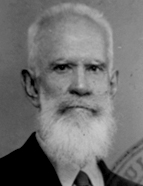

In 1897, he was appointed as the chair of History of Law at the University of Oviedo. During this period, he experienced University Extension, which he continued after moving to Madrid. The aim of this initiative was to disseminate the knowledge generated at the university through lectures, courses, and other activities to social classes that could not access them ("Aproximación intelectual e ideológica...", 1987, p. XIII). This was also when he produced his most significant scientific work, a time marked by deep social commitment and the consolidation of his political and patriotic aspirations. As a delegate of the University of Oviedo, he travelled extensively (1909-1910) to countries in the Americas, including Argentina, Uruguay, Chile, Peru, Mexico, Cuba, and the United States, where he gave lectures and courses at various universities and cultural centres. He achieved considerable success, which reinforced his hypotheses regarding the future of a common cultural identity. Additionally, this experience enabled him to establish “personal relationships with many prominent figures in American intellectual life. These connections fostered an understanding shaped by university exchanges and collaborative work between Spanish and American intellectuals, leading to greater attention from the latter towards the issues faced by the nations of the New World” ("Don Rafael Altamira y Crevea.", 1951, p. 453). A few years later, in 1914, a doctoral chair was established for Altamira at the Universidad Central de Madrid [Central University of Madrid] (UCM), titled Historia de las instituciones políticas y civiles de América [History of Political and Civil Institutions in America] ("Estudio preliminar", 1988, p. 14).
He enjoyed a distinguished career, engaging in various roles including historian, jurist, international judge, politician, writer, journalist, literary critic, and university professor. He served as the second secretary of the Museo Pedagógico Nacional (1888) and was a professor at both the University of Oviedo and the University of Madrid, where he also held the position of Dean of the Faculty of Law. He served as the Inspector General of Primary Education in 1910 and as the Director General of Primary Education in 1911. Altamira was elected Senator for the University of Valencia in 1916, 1918, 1919, 1921, and 1923. In 1919, he began his involvement in international justice, being appointed as an arbitrator at the Mining Disputes Tribunal of Morocco in Paris. He served as a judge at the Permanent Court of International Justice from 1921, was re-elected in 1930, and remained with the Court until its activities were suspended. In 1921, he was appointed a member of the Junta para la Ampliación de Estudios [Board for the Extension of Studies] (JAE). He represented the Spanish government at several international congresses, including those held in Rome in 1903, Berlin, Brussels (1911), London (1913), and Oakland, California, in 1915. He was nominated for the Nobel Peace Prize on two occasions, in 1933 and 1951.
This work is financed by national funds through FCT - Foundation for Science and Technology, I.P, in the scope of the projects UIDB/04311/2020 and UIDP/04311/2020.
